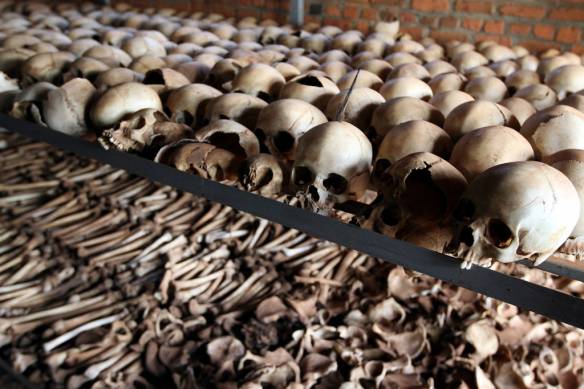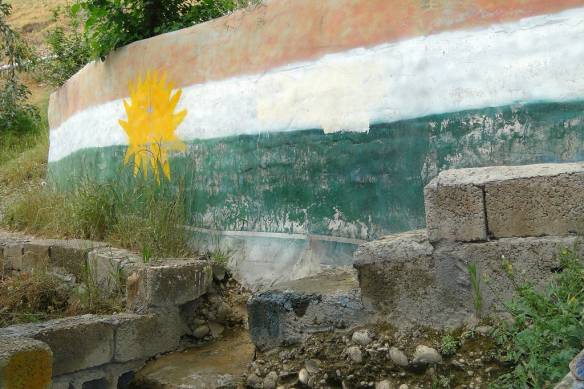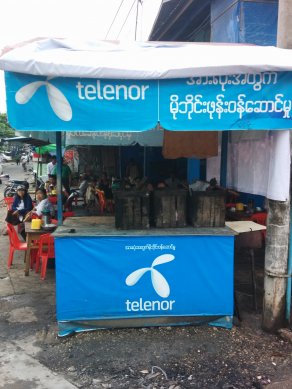Monday 3 November South Sudanese officials accused Khartoum of launching a bombing raid on a village in Western Bahr el Ghazal over the weekend. The SPLA and the rebel forces traded accusations over who started new fighting in the town of Dolieb, in Upper Nile state, on Sunday. Tuesday 4 November VoA South Sudan in… Read more »
Demystifying the White Army: Nuer Armed Civilians’ Involvement in the South Sudanese Crisis
Article posted in ACCORD Conflict Trends Magazine, 2014/13, by PRIO Researcher Ingrid Marie Breidlid, and Michael J. Arensen. The article argues that although the conflict erupted as a result of division within the SPLM, the mass mobilization in opposition areas, e.g. of Nuer civilian fighters, illustrates this is not only a political dispute, but also a… Read more »
This Week in South Sudan – Week 44, Part 2
Friday 31 October UNIMISS extracted 30 civilians from the Rubkona airstrip in Unity State, to a Protection of Civilians (PoC) site in a UN compound. According to a WFP official, famine in South Sudan is temporarily averted, but risks remain if fighting escalates. Canada joined the group of nations sanctioning top South Sudanese generals, accusing SPLA-Juba commander Marial… Read more »
Measuring, “Denying” & “Trivializing” Deaths in the Case of Rwanda

Photo: DFID, Tiggy Ridley, via Flickr
Reading “The Reign of ‘Terror” by Tomis Kapitan in the New York Times on October 19th, I was struck by the following passage:
…the rhetoric of “terror” has had these effects:
- It erases any incentive the public might have to understand the nature and origins of their grievances so that the possible legitimacy of their demands will not be raised.
- It deflects attention away from one’s own policies that might have contributed to their grievances.
- It repudiates any calls for negotiation.
- It obliterates the distinction between national liberation movements and fringe fanatics (for example, during the 1990s, the “terrorist” label was applied to Nelson Mandela and Timothy McVeigh alike);
- It paves the way for the use of force by making it easier for a government to exploit the fears of its citizens and ignore objections to the manner in which it responds to terrorist violence.
This Week in South Sudan – Week 44, Part 1
Monday 27 October According to a Global Witness report, South Sudan’s first post-independence oil deal with Star Petroleum is high-risk and in urgent need of further scrutiny. Fighting erupted again between government forces and rebel troops in Unity State in South Sudan; each side blamed the other for initiating the clash. According to a senior researcher at… Read more »
Nationalism under Pressure: Islamic State, Iraq and Kurdistan
Has the Iraqi Kurds’ sense of national identity been strengthened by the emergence of the so-called Islamic State? Not necessarily. If anything, mounting socio-economic and political tensions inside northern Iraq have been tearing at Kurdish nationalism for the last decade.

Still Life with Kurdistan Flag. Germiyan Province , courtesy of Global Photo Archive . CC BY Adam Jones via Flickr.
This Week in South Sudan – Week 43, Part 2
Friday 24 October The Tanzanian CCM defended invitation of South Sudan’s warring factions to Arusha, claiming it does not sabotage the IGAD peace process. The South Sudanese government accused of threatening international aid agencies. Nuer community in Uganda declared their support to Riek Machar. The SPLM dismissed the SPLM-in-Opposition’s claims on President Salva Kiir’s legitimacy…. Read more »
This Week in South Sudan – Week 43, Part 1
Monday 20 October The head of the SPLM-G10 faction, Pagan Amum Okich, accused Kampala and Khartoum for interfering in South Sudanese politics to serve their own interests. IGAD-led South Sudan peace talks postponed until 27 October. Tuesday 21 October The three main factions agreed on a intra-SPLM dialogue framework and communique in Arusha to support… Read more »
Putin steals the Asia-Europe show – and brings big disappointment
The most recent Asia-Europe Meeting (ASEM) summit attracted a sizeable crowd of world leaders to Milan last week (October 16–17), but the formal agenda was overtaken by the efforts to manage the violent conflict between Russia and Ukraine and facilitate dialogue between presidents Vladimir Putin and Petro Poroshenko. The European Union sought to deploy… Read more »
Norway’s Tightrope Walk in Myanmar
Are the people of Myanmar able to distinguish between Norway’s role in promoting peace and the commercial interests of Norwegian businesses? Now that several state-owned Norwegian companies have entered into large and risky ventures in Myanmar, Norway is walking a tightrope between peace and commerce. The maintenance of support for the peace process is critical.

Telenor in Myanmar.
Photo: Wayan Vota via Flickr
Peace and commercial interests
Norway has gained an international reputation as a peace builder, a role enabled by, among other factors, the Nobel Peace Prize and Norway’s status as a small country on the edge of Europe, without superpower pretensions.